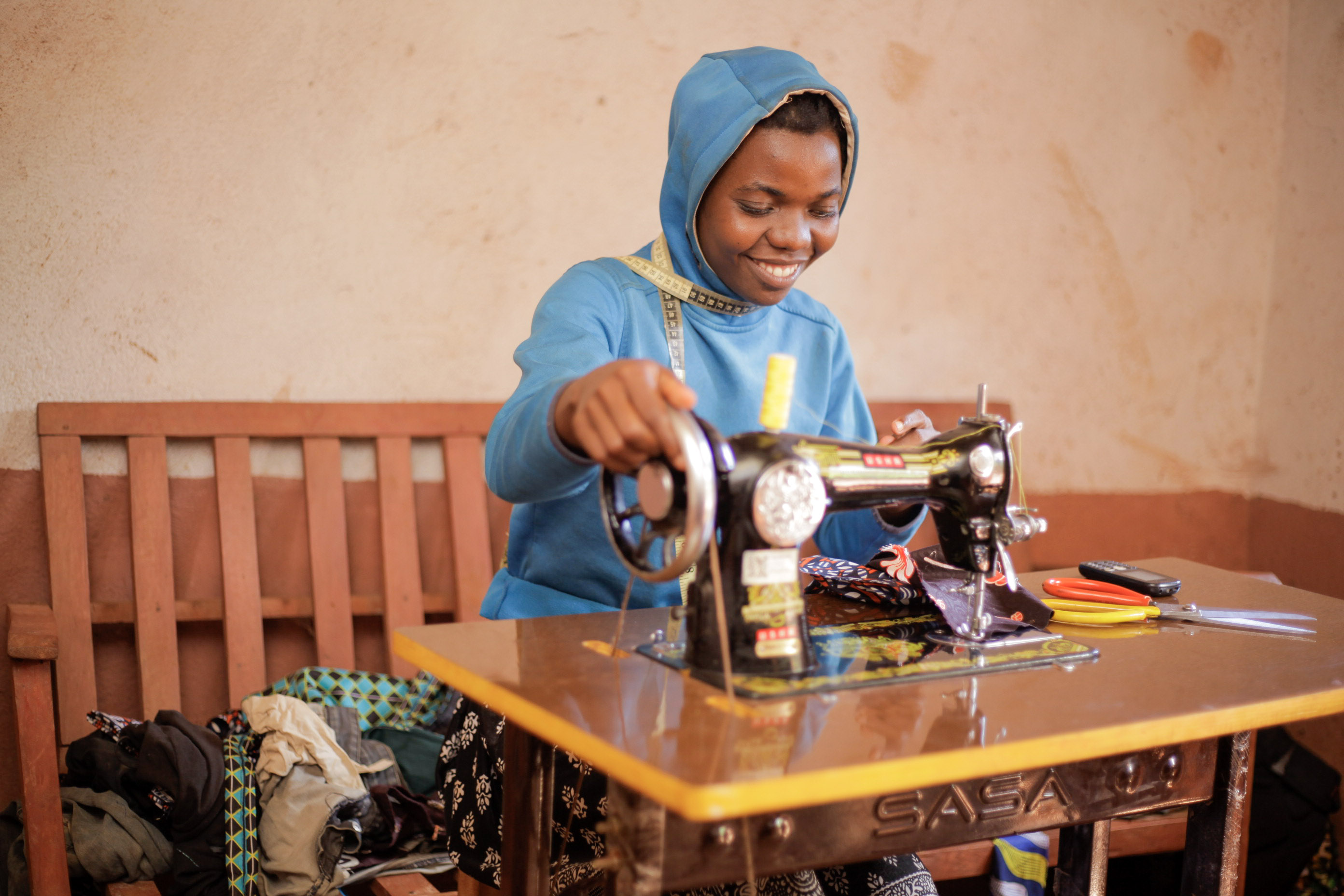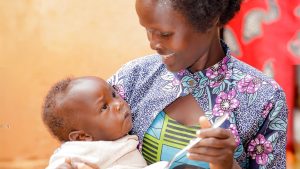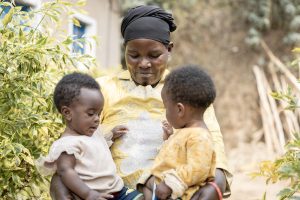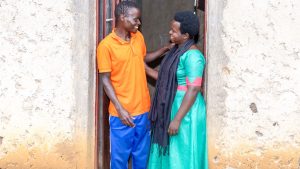At 13, Assinata dropped out of school, ostensibly to handle household chores after her elder sisters married. However, the real reasons were more complex. “I was tempted to follow my peers who had left for town to work as house girls,” Assinata confesses. “When they returned with things they had bought, we all envied them.”
This peer pressure led Assinata down a troubling path. She began stealing from her parents to save money for a trip to town, where she believed a job awaited her. Her rebellious behavior isolated her from family and friends. “I had minimum contact with my age mates and was living in my own world,” she recalls. This behavior not only strained her family ties but also put her at risk of exploitation.
In November 2020, through the GEWEP III, a project implemented by CARE Rwanda in partnership with AEE Rwanda, Pro-Femmes/ Twese Hamwe and RWAMREC; Assinata got introduced to GEWEP III community mobilizers in their village gathering, seeking adolescent dropouts to form youth clubs in an effort to provide them with reliable information on SRH, and allow them to make informed decisions. Assinata joined the “Ejo Heza” youth club from Mukindo, where discussions on Sexual and Reproductive Health (SRH) and family relationships became a turning point in her life. “We would talk about SRH using a booklet known as ‘Ninjye Musingi w’ubuzima’. We would meet every Wednesday at 2 PM and were placed under a male mentor. He was passionately mentoring us on SRH related matters including our relationships with our families,” Assinata explains.
As part of the SRH education, Assinata and peers went through the importance of healthy relationships among family members, which made her think about her situation with her parents. A pivotal moment came when the club invited parents to join some sessions.
“Inviting them increased greatly my relationship with my parents,” Assinata reflects. “I had learned that it was part of adolescence and puberty to be feeling like distancing myself from her parents. We also learned about how to communicate with them, which is the basic of good relationship.”
Alongside SRH education, the club introduced the concept of savings groups. Assinata embraced this opportunity, starting with saving 100 FRW per week and gradually increasing to 800 FRW. As Assinata’s savings grew and her relationship with her parents improved, she saw an opportunity to invest in her future. After a year of saving, she got enough money to purchase a goat to rear. Later on, she earned 90,000 FRW from her savings and selling her goat, Assinata got inspired to buy a sewing machine, to make better use of her money. When she fell short by 15,000 FRW, her restored relationship with her parents became crucial. “Thanks to my restored relationship with my parents, I was able to approach them for support, and my father gave me the missing money, which would have been unimaginable before being part of the youth club,” she says proudly.
Assinata bought the machine despite the fact that she never learned how to sew. She opted to borrow 30,000 FRW from her saving group, where she paid for a tutor. Today, after mastering her sewing techniques, Assinata co-rents a room where she runs her sewing business, earning more than 15,000 FRW per month regularly. She continues to save 1,600 FRW per week, easily pays rent, and can even support her parents when needed. More importantly, her relationship with her family has been transformed. “We are now openly talking with my parents about everything. Whenever I have something bothering me, I go to them. This was impossible before,” Assinata shares.





